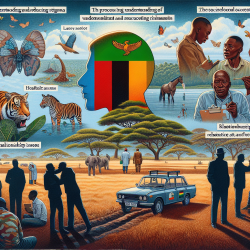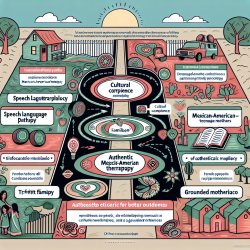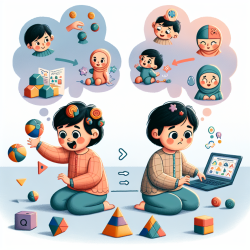Introduction
In a world where the refugee crisis continues to grow, understanding and addressing the mental health needs of refugees is paramount. The recent study, "A mental health framework from the voices of refugees," offers a comprehensive framework aimed at enhancing mental health support for refugee communities. This blog explores how practitioners can leverage this framework to improve their skills and deliver effective interventions.
Understanding the Refugee Mental Health Framework (RMHF)
The RMHF was developed to fill the gaps in understanding the mental health needs of refugee populations. It emphasizes the importance of prioritizing the voices of refugees and integrating lessons learned from working with these communities. The framework serves as a mapping, planning, and intervention tool, facilitating better resettlement support and promoting mental well-being.
Key Components of the RMHF
- Community Understanding: Recognizing the unique experiences and cultural contexts of refugee communities is crucial. This includes understanding their home community, experiences of trauma and displacement, and current resettlement challenges.
- System-Level Dimensions: These include service provision, prevention and promotion, research and policy, education and advocacy, and community leadership. Each dimension is informed by the community's understanding and aims to enhance mental health support.
- Community Leadership: Engaging community leaders as key stakeholders ensures that interventions are culturally relevant and effective. This shifts the focus from a "service to" to a "work with" approach.
Practical Application for Practitioners
For practitioners, the RMHF offers a structured approach to designing and implementing mental health programs. By starting with a fundamental understanding of the community's values and experiences, practitioners can tailor interventions that resonate with the community's needs. The framework encourages continuous learning and adaptation, ensuring that interventions remain relevant and effective.
Encouraging Further Research
While the RMHF provides a solid foundation, it also highlights the need for ongoing research to refine and adapt the framework to different refugee communities. Practitioners are encouraged to engage in research initiatives that explore the framework's applicability across various cultural contexts and to contribute to the growing body of evidence-based practices.
Conclusion
The RMHF represents a significant step forward in addressing the mental health needs of refugee communities. By integrating community voices and cultural contexts, practitioners can deliver more effective and compassionate care. For those interested in delving deeper into the framework, I encourage you to read the original research paper, A mental health framework from the voices of refugees.










